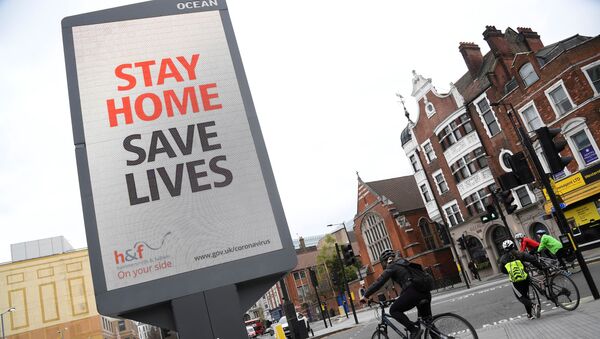The revamp will ensure that larger businesses are also able to apply for government financial assistance, and aim to pressure banks into being more flexible in terms of interest rates and repayments.
Political economist Dr Richard Wellings reflects on whether these measures will actually go far enough.
Sputnik: Do you think that the British Government has done enough to safeguard the UK’s economy from the effects of the coronavirus pandemic?
Dr Richard Wellings: It actually worries me that they may have done too much, given that public finances were already in quite a perilous position, with dangerous levels of national debt, so the worry here is that by bailing out businesses too generously; they will actually keep some of these businesses going too long, which could lead to permanent adjustments of economic behaviour.
Some of these firms wouldn’t have lasted anyway, they would have collapsed, so keeping them afloat is going to hamper the adjustment process that will be needed for a strong economic recovery.
Sputnik: How much of an impact could the coronavirus pandemic have on both the British and world economy in the long term?
Dr Richard Wellings: In the short term, we are probably looking at an unprecedented shock in terms of the falling GDP in quarter two of 2020, and the UK’s economy could perhaps enter its deepest recession since the early 1920s, and we may even be worse than that.
Obviously, there’s also a difference in the sharpness of the fall, and because there will be some longer-term changes in economic behaviour, which means that some sectors will recover strongly, and other sectors may still be in trouble.
There may be restrictions on tourism and airlines because there may be fears of a second wave of the pandemic in the autumn and the winter, so many sectors will be struggling. There will be quite a strong partial recovery; I don’t think it’s going to go the whole hog, we still might be looking at a recession in the medium term.
Sputnik: Could British Prime Minister Boris Johnson now feasibly delay Brexit to avoid further economic instability?
Dr Richard Wellings: Brexit would add another layer of uncertainty and risk, but actually if it was done properly; it could actually help the UK economy to recover more speedily, as long as the government had a strong programme of reform, then Brexit and particularly a clean Brexit, would offer the opportunity for a big programme of de-regulation, and getting rid of a lot of this expensive EU red tape.
If they could do this, then it would be a massive boost to UK businesses, and that would really speed the recovery. In one way I think that a proper Brexit is actually needed more than ever now, because it is exactly what is needed to allow the UK economy to recover more strongly, and not to get stuck in this heavily regulated, heavily taxed EU model.




